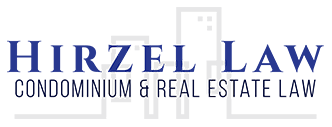As many new condominium co-owners are aware, the general operations of a condominium association are funded through annual assessments. MCL 559.169 sets forth the requirements for imposing assessments in a Michigan Condominium as follows:
559.169 Assessment of common expenses; contribution of co-owner.
Sec. 69. (1) Except to the extent that the condominium documents provide otherwise, common expenses associated with the maintenance, repair, renovation, restoration, or replacement of a limited common element shall be specially assessed against the condominium unit to which that limited common element was assigned at the time the expenses were incurred. If the limited common element involved was assigned to more than 1 condominium unit, the expenses shall be specially assessed against each of the condominium units equally so that the total of the special assessments equals the total of the expenses, except to the extent that the condominium documents provide otherwise.
(2) To the extent that the condominium documents expressly so provide, any other unusual common expenses benefiting less than all of the condominium units, or any expenses incurred as a result of the conduct of less than all those entitled to occupy the condominium project or by their licensees or invitees, shall be specially assessed against the condominium unit or condominium units involved, in accordance with reasonable provisions as the condominium documents may provide.
(3) The amount of all common expenses not specially assessed under subsections (1) and (2) shall be assessed against the condominium units in proportion to the percentages of value or other provisions as may be contained in the master deed for apportionment of expenses of administration.
(4) A co-owner shall not be exempt from contributing as provided in this act by nonuse or waiver of the use of any of the common elements or by abandonment of his or her condominium unit.
MCL 559.169 addresses the circumstances in which an assessment can be levied against an individual unit and when an assessment is required to be levied in equal proportion as to all of the co-owners. However, the Michigan Condominium Act is silent as to what happens when the annual assessment is insufficient to cover an association’s operating expenses. Accordingly, many new condominium co-owners are unaware that there are two other types of assessments that are frequently levied: additional assessments and special assessments. This article will explain the differences between additional assessments and special assessments and discuss how they relate to annual assessments as many co-owners confuse these terms.
Additional Assessments
The Michigan Condominium Act, MCL 559.101, et seq., does not specifically define “Additional Assessment” or “Special Assessment”. Accordingly, the Master Deed and/or Condominium Bylaws define the terms “Additional Assessment” and “Special Assessment”.
The board of directors of a condominium association typically sets an annual budget which projects all expenses for the coming year, and establishes a sufficient reserve fund as required by MCL 559.205. The Condominium Bylaws typically permit additional assessments in the following circumstances: (1) to meet deficits incurred or anticipated because of an insufficient annual assessment; (2) to provide replacements of existing common elements; (3) to provide additions to the common elements not exceeding certain levels; or (4) for any emergencies. In short, while the Master Deed and Bylaws will define when the board of directors can levy an additional assessment, an additional assessment is typically levied to cover unanticipated operating expenses. Most condominium documents do not provide the co-owners the right to vote on whether or not an additional assessment should be imposed. Accordingly, the decision to impose an additional assessment is most often within the sole discretion of the board of directors. Therefore, only the board of directors must vote on and approve the imposition of an additional assessment.
Special Assessments
Similar to additional assessments, there are typically specific circumstances when an association is permitted to levy a special assessment. Condominium bylaws frequently permit the imposition of a special assessment for: (1) providing additions to the Common Elements in excess of a certain amount; (2) assessments to purchase a unit upon foreclosure of the lien (although this is sometimes allowed under the additional assessment powers); or (3) assessments for any other appropriate purpose not elsewhere described. Special assessments differ from additional assessments in that they must usually be approved by a certain percentage of the co-owners before they can be levied. The number of co-owners required to approve a special assessment varies from one association to the next, but approval by at least fifty percent of the co-owners of an association is common. In short, a co-owner should review their condominium bylaws to determine the circumstances in which a special assessment may be levied and whether or not co-owner approval is required.
Conclusion
The main difference between additional assessments and special assessments is often that the co-owners are required to vote to approve special assessments, whereas the board of directors typically can levy an additional assessment without co-owner approval. There are also different circumstances under which an association may levy additional or special assessments. In sum, it is important for prospective purchasers of a condominium unit to review their condominium documents and understand the various types of assessments that can potentially be levied by a condominium association. This is especially true as the failure to pay an additional assessment or special assessment carries with it the same consequences of failing to pay an annual assessment. Specifically, MCL 559.206 states that a default by a co-owner shall entitle a condominium association to the following relief: “Failure to comply with any of the terms or provisions of the condominium documents, shall be grounds for relief, which may include without limitations, an action to recover sums due for damages, injunctive relief, foreclosure of lien if default in payment of assessment, or any combination thereof.” Accordingly, a co-owner that fails to pay an additional or special assessment will likely be faced with having to pay fines, late fees, interest and/or legal fees.
Kevin Hirzel is a Partner at Cummings, McClorey, Davis & Acho, P.L.C. and runs the community association practice group. He frequently represents Builders, Community Associations, Condominium Associations, Cooperatives, Co-Owners, Developers, Homeowner Associations, Investors, Property Owners and Property Managers throughout the State of Michigan. Cummings, McClorey, Davis & Acho, P.L.C. has Michigan offices in Clinton Township, Grand Rapids, Livonia and Traverse City. Mr. Hirzel can be contacted at (734) 261-2400 or khirzel@cmda-law.com. Please view The Michigan Community Association Law Blog at http://www.micondolaw.com for additional resources on Michigan Community Association Law.
Brandan A. Hallaq is an attorney with Hirzel Law, PLC where he dedicates the majority of his practice to representing condominium and homeowner’s associations. He frequently litigates cases involving contract disputes, shareholder/member disputes, quiet title actions to determine interests in property, enforcement of restrictive covenants, real estate foreclosure actions, and bankruptcy matters representing creditors. He also has experience preparing documents for business and real estate transactions including purchase agreements, franchise agreements, loan/financing documents and commercial and residential leases and mortgages. In 2018, he was recognized as a Rising Star by Super Lawyers, a designation that is given to no more than 2.5% of attorneys in the State of Michigan. Mr. Hallaq obtained his Juris Doctor degree, cum laude, from Wayne State University Law School where he served as an editor on the Wayne Law Review. He can be reached at (248) 478-1800 or at bhallaq@hirzellaw.com.

